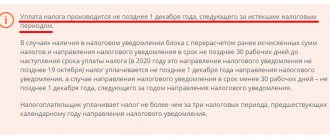Not all crimes established by the Criminal Code are punishable by imprisonment for the convicted person. Often the committed act is not serious or dangerous for the population, and sometimes a crime is committed by a person out of ignorance, carelessness, or for the first time. In this case, it is more expedient not to send a person to prison with “experienced” convicts, creating conditions for his downfall as a person, but to choose arrest as a punishment. In half the cases, being a person under arrest helps him re-evaluate his actions and re-educate himself.
Arrest as a type of criminal punishment in our country appeared relatively recently. It is recorded in Article 54 of the Criminal Code of the Russian Federation.
What is an arrest: general information
First, let us understand the terminology. Arrest is a measure of punishment for a citizen who has committed a criminal offense. Arrest is established by a court decision, and not by sentence. The main requirement of arrest is the isolation of the convicted person from society and contacts with the “outside world.”
Most often in our country, arrest is chosen as a preventive measure of punishment, chosen with the aim of preserving a person’s future and giving him the opportunity to improve. As a rule, such a shock occurs if a person has broken the law for the first time.
The court has the right to choose arrest as a criminal punishment in the following cases:
- If a more lenient punishment can be imposed for the crime committed under the Special Part of the Criminal Code;
- If there are conditions and life circumstances that require a more lenient sentence, regulated by Article 64 of the Criminal Code of the Russian Federation.
- The jury's decision to render a verdict of leniency for the convicted person is part 2 of article 65 of the Criminal Code of the Russian Federation.
- Changing the remaining part of the punishment with milder sanctions is Article 80 of the Criminal Code of the Russian Federation.
- Use arrest as a substitute for community service previously assigned as punishment if the convicted person evaded them or performed them in bad faith (Articles 49-50 of the Criminal Code of the Russian Federation).
Arrest is considered the main type of criminal punishment, which cannot be replaced by a suspended sentence.
As a rule, in practice, convicts serving a sentence of arrest are subject to the same rules of detention as prison inmates.
Legal regulation of civil arrest in Russia
Russian criminal legislation does not contain any regulations regarding the use of the possibility of civil arrest or detention of persons who have committed a crime. The only rules applicable to the detention of persons are disclosed in the provisions of Art. 38 and 39 of the Criminal Code of the Russian Federation, which are devoted to issues of criminal liability for actions committed during the detention of criminals.
However, the explanatory resolution of the Plenum of the Armed Forces of the Russian Federation dated November 27, 2012 fully discloses the right of eyewitnesses of a crime, or persons affected by it, to detain the criminal before the arrival of the police.
At the same time, Articles 38 and 39 of the Criminal Code of the Russian Federation can act as fundamental for the release of a person from criminal liability for harm caused to a detainee. Current legislative standards allow harm during the process of civil arrest in the following situations:
When such harm was due to the need to make an arrest in order to prevent escape or continuation of the commission of criminal acts;- When performing the necessary defense, which consists in protecting oneself from the criminal actions of others or protecting the legitimate interests and health of third parties from socially dangerous acts;
- In case of extreme necessity, in which the harm caused by possible criminal actions would be foreseeably greater than the harm caused to the person who committed such actions.
Please note:
Causing harm to a criminal during arrest may not always result in impunity. Thus, if there is an excess of the permissible limits of necessity or the stipulated principles of defense, in case of intentional harm to his health, not due to the need for detention or extreme circumstances, the detaining person will bear full responsibility in accordance with the current criminal legislation.
What types of arrest are there?
As of 2021, only two forms of arrest are used in Russia:
- House arrest;
- Stay of the sentenced person in the arrest house.
In order to impose arrest as punishment, the court must assess the severity of the crime and determine whether the reasons for choosing arrest are:
- The severity of the crime committed;
- Physical condition of the convicted person, medical indicators;
- Marital status, presence of minor children;
- Characteristics from a psychologist and friends;
- Age of the convicted person;
- Attitude towards the crime committed;
- Whether the crime was committed for the first time;
- The circumstances in which the crime was committed.
The Kremlin ruled out the possibility of arresting Sokurov after a dispute with Putin
Director Alexander Sokurov does not face arrest for arguing with Russian President Vladimir Putin at a meeting of the Human Rights Council (HRC).
Press secretary of the Russian leader Dmitry Peskov . Thus, he commented on the words of Sokurov himself, who did not rule out his arrest.
“If a decision is made to arrest me or do something, I won’t be able to avoid it. I don’t know what the consequences might be,” the director told Podem.
At the same time, he added that he does not regard his words “about the structure of Russia” as a call for violation of territorial integrity. Although this is precisely the impression that emerged from his proposal to “let go” of those regions that “do not want” to be part of the Russian Federation.
In fact, it was a public call directed against the territorial integrity of our state, for which criminal liability is provided. However, the Kremlin assured that Sokurov would not be arrested for this.
"Of course not! This is out of the question! The President treats him very kindly. But a dispute is a dispute,” Dmitry Peskov assured.
Let us recall that Putin, at a meeting with the Human Rights Council, entered into a debate with Sokurov, whose speech contained an extremely negative assessment of everything that is happening in Russia against the backdrop of a “very difficult” foreign policy situation.
From the director’s words it came out that our country is a complete disaster, the army has decayed, and law enforcement agencies are doing nothing but fighting with their own people.
It is worth noting that Putin listened to the speech to the end and criticized it very kindly. He called Sokurov’s speech a “manifesto” and a “set of fears” that are inherent in “part of our society.”
The head of state called on the director to refrain from public rash calls aimed at the collapse of the country. He recalled that “the bloody period of the 90s showed how this could end.”
And then he invited his opponent to his place for a face-to-face discussion. And now Peskov also assures that Sokurov is not going to be prosecuted.
One can only wonder how well life has become for enemies and traitors in Rus'. And no one bothers you to make a movie, they sign you up for the Human Rights Council, and the president invites you to visit. And the Kremlin speaker himself gives security guarantees.
As EADaily , earlier the head of Chechnya, Ramzan Kadyrov, advised the competent authorities to give the words of “nihilist Alexander Sokurov a legal assessment as to the fact of an anti-state and extremist nature.”
House arrest
According to the lawyer, house arrest is one of the mildest punishments, preferable for a convicted person rather than a detention center.
Unlike other types of imprisonment or arrest, when a convict is assigned to house arrest, they are allowed to keep their passport, because in fact he is not in custody. The period of house arrest can be up to two months.
To assign arrest as punishment to a convicted person, the investigator is obliged to check:
- Does the convicted person have a permanent place of residence?
- Is it possible for employees to establish constant surveillance of the convicted person?
As a place for serving house arrest, you can choose not only the apartment or house of the convicted person, but also a hospital or medical institution, if there are special indications.
Since the location of the convicted person during house arrest will not necessarily coincide with his registration address, the law had to define criteria for choosing the place of arrest:
- Permanent residence of his family and minor children with him;
- The presence of personal belongings of the convicted person;
- Availability of a medical facility, if required.
After the place of residence of the convicted person has been chosen, you need to select the restraints of freedom:
Have a question for a lawyer? Ask now, call and get a free consultation from leading lawyers in your city. We will answer your questions quickly and try to help with your specific case.
Telephone in Moscow and the Moscow region: +7
Phone in St. Petersburg and Leningrad region: +7
Free hotline throughout Russia: 8 (800) 301-39-20
- The circle of persons who have the right to see the convicted person and stay in the territory of serving the sentence is designated;
- Determination of acceptable means of communication for conversations and correspondence;
- Is working from home allowed?
- Restriction on movement (the main restriction of a person sentenced to house arrest). If someone is arrested, then he is obliged to: Visit the store, if he lives alone, only with the permission of the investigator or the person in charge;
- Located at the punishment address around the clock, it is forbidden to leave the territory even a couple of meters without permission;
- Report to supervisory authorities a certain number of times a month.
Types of arrest
The types of arrest are determined in accordance with the stage of judicial proceedings in a particular criminal case. So, an arrest can act as:
- A method of restricting the freedom of a criminal in order to prevent his escape or concealment, as well as protecting his persons who are capable of providing any false information and documents.
- Direct punishment, which involves placing the convicted person in a place isolated from society, depriving him of the opportunity to interact with people, and keeping him in particularly strict conditions.
According to the law, in the first case the perpetrator can be kept under arrest for two months, but in practice the arrest is often carried out throughout the entire investigation.
In this case, arrest can also be of two types:
- Accommodation in a pre-trial detention center.
- The prisoner is kept at home, but without the right to leave his place of residence and use any means of communication.
As for serving a sentence in the form of a ban, the following options are provided:
- imposition of partial restrictions on the convicted person, carried out at intervals from two months to four years. These restrictions depend on the nuances of a particular case and the severity of the act;
- placing the offender in a detention center for 24-hour detention.
Speaking about house arrest, it is worth mentioning that it is the mildest form of this punishment. In this case, the criminal must constantly remain in the place of residence in which security cameras are installed.
The prisoner's registration address does not have to coincide with the place of actual residence, but the culprit cannot leave it. The exception is when the prisoner lives alone, then he is allowed to visit stores, but at strictly established times and under supervision. House arrest is usually imposed for a period of up to 2 months.
In other cases, convicts are sent to specialized institutions - arrest houses.
Arrest house
The next most severe punishment is the convict’s stay in an arrest house, chosen as a place of strict isolation of criminals from society. As a rule, punishment in the form of arrest is chosen for the “stumbled” category of criminals.
You can be assigned to stay in a house of arrest if:
- The convicted person does not have a permanent place of residence;
- The personality and characteristics of the convicted person do not allow the court to trust him;
- The convict was already under house arrest, but violated the rules of residence and the terms of his sentence;
- During the investigation, the convict was hiding from the justice authorities.
Unlike being under house arrest, a house of arrest prohibits the prisoner from leaving the territory of the house. Exceptions are situations and conditions that are dangerous to the life of the convicted person:
- Force Majeure;
- Natural disaster, fires;
- Attack on the arrest house;
- Threat to the safety, life and health of the convicted person;
- Serious illness of a prisoner requiring inpatient treatment in a medical institution.
If internal conflicts arise and for other valid reasons, the law allows the arrestee to be transferred to another arrest house.
In fact, the conditions of stay and detention of a prisoner in a house of arrest are often stricter than in many general or strict regime colonies. House rules include;
- Prohibition on communication with family, friends, friends;
- It is prohibited to receive and send parcels and parcels;
- Purchase of food products for more than the amount calculated using the formula “minimum wage + 20%”.
- Exchange of emails and messages is prohibited;
- Telephone calls are allowed only in extreme circumstances (death or illness of a relative;
- The prisoner is required to work 4 hours a day, without receiving pay.
Nevertheless, prisoners have the right to daily one-hour walks in the fresh air.
If military personnel are arrested, they must be sent to a guardhouse ten days before being sent to the place where they are serving their sentence. In addition, military personnel serve their sentences separately from civilians, and officers from privates.
Legalization of Bitcoin mining
In November 2021, it became known that the Russian authorities intend to legalize the mining of Bitcoin and other cryptocurrencies in Russia. State Duma Chairman Vyacheslav Volodin ordered the creation of a special working group that will deal with this issue.
Authorities will be able to seize and seize cryptocurrency
“Due to the lack of regulation of the circulation of cryptocurrency, law enforcement agencies generally find themselves in a dead end, since they cannot identify signs of a crime in the activities of individuals and make the necessary procedural decisions,” said Andrei Lugovoy, first deputy chairman of the Committee on Security and Anti-Corruption. Now the authorities want to impose all kinds of taxes on this activity.
Open RAN and other trends: you can’t expect miracles of savings
Telecom
At the end of August 2021, Russia took third place in the world standings in terms of the number of bitcoins mined, behind only Kazakhstan and the United States.
Moreover, this position of the state towards mining is relatively new. Previously, officials wanted to put cryptocurrencies in prison and take away their tokens. A few days before the proposal to transform crypto mining into entrepreneurial activity, the press secretary of Russian President Vladimir Putin, Dmitry Peskov , personally spoke out against such ideas, writes RIA Novosti. According to him, equating Bitcoin with money “cannot bring anything but harm” to the financial and economic system.
Arrest of minors
The basic procedure for serving prisoners from 16 to 18 years of age almost completely corresponds to the regime for serving arrest for adults. Only two exceptions are allowed:
- The duration of a daily walk should be at least one and a half hours;
- Minor prisoners are allowed to see their immediate family.
In some cases, when committing serious crimes, minors over fourteen years of age may be sentenced to arrest and stay in a detention center.
Please note that Russian legislation is constantly changing and the information we write may become outdated. In order to resolve the issue you have regarding Criminal Law, we advise you to seek the advice of a lawyer in support of the site.
Law for cryptocurrency
The Prosecutor General's Office is working on regulations governing the circulation of cryptocurrencies. Thus, cryptocurrencies in illegal circulation will not only be recognized as the subject of a crime, but there will also be a legal possibility of their arrest and confiscation. Igor Krasnov told RIA Novosti about this .
According to Krasnov, at the moment, judicial practice in criminal cases, as a rule, recognizes digital currencies as property, that is, the subject of a bribe. However, this is not enough to create uniform and sustainable law enforcement. It will be facilitated by the introduction of the concept of cryptocurrencies and other virtual assets into the criminal legal space by enshrining the relevant norms in legislation, says Krasnov.
At the same time, the Prosecutor General did not specify what specific changes were developed. But the arrest and confiscation of cryptocurrencies can be carried out by freezing funds on regulated crypto exchanges, transferring cryptocurrencies to the accounts of financial government agencies, or confiscating passwords from wallets by court order.
In July 2021, Prosecutor General Krasnov also proposed adding amendments to Russian legislation allowing for the confiscation of illegally obtained cryptocurrency from citizens.
Features of the arrest
Unofficially, arrest is divided into two categories - civilian and military . Military arrest is a punishment for crimes committed by the military, as well as for serious violation of military regulations. The guilty soldier is serving his sentence in the guardhouse. We will not consider it, but will move on to civil arrest, which is much more common. Main features of the arrest:
- The accused serves his sentence in much the same way as a person deprived of his liberty. He is in a special institution, where during the day he is in solitary or general confinement;
- The arrested person can only meet with lawyers, attorneys and other persons who can provide legal services. Other dates are prohibited ;
- The movement of a convicted person without an escort is strictly prohibited. The exception is an hour-long walk under supervision;
- The transfer of parcels is prohibited. The only exception is the transfer of clothing and basic necessities. The prisoner himself can buy food worth no more than 400 rubles through an authorized representative;
- There is no training for convicts. They are also not involved in work. An exception is housework (no more than 4 hours in one week). In this way, arrest is somewhat similar to forced labor;
- The behavior of those arrested can serve as a reason for reward (removal of previously imposed sanctions, provision of a telephone conversation) or punishment (solitary confinement, reprimand).
As can be seen from this list, arrest is the same imprisonment, but much shorter and requiring less from the convicted person. However, we remind you that in general the conditions of a detention facility may be worse than in places of deprivation of liberty .
Choice of freedom limiters
To fully disclose the question of what house arrest is as a preventive measure, it is necessary to consider the features of its purpose.
To apply the sanction of arrest, investigators must select restraints of freedom. To do this, the following aspects are considered:
- the circle of people who have the right to visit the convicted person or live with him is designated;
- acceptable means for correspondence and telephone conversations are determined;
- the possibility of working at home is established;
- restrictions on movement are indicated (for example, the ability to visit stores when living alone, staying at home around the clock, visiting a supervisory authority at a set time, etc.).
These aspects of being under house arrest are determined individually for each defendant depending on the previously discussed circumstances.
Classification of arrests
Depending on how the definition of what a judicial arrest is is considered, the types of its division are established. Taking into account the stage of judicial proceedings in a criminal case, the arrest is classified on the following grounds:
- As a preventive measure. Used at the investigative stage. Used as a protective measure to prevent the criminal from evading investigation and punishment. It is carried out by completely isolating the convicted person from his accomplices in order to create obstacles to relapse.
- As an option for punishment. Used during legal proceedings. Used as an alternative to full imprisonment. The accused will be able to remain in a specific place (for example, at home) without the possibility of contact with others.
To hold a person under investigation, the period of arrest should not exceed two months. It can be extended, if necessary, by dividing it into parts: staying in a pre-trial detention center and being under house arrest.
Terms of arrest
After considering the question of what administrative and criminal types of arrest are, it should be established what the deadlines for applying isolating type sanctions are.
There are two categories of punishment periods:
- house arrest – from two to four months;
- stay in a house of arrest – from one month to six months.
If the penalty is established for committing serious crimes, the minimum penalty is four months and the maximum is two years. If during the period of arrest the convicted person performed public work, the sentence is reduced to a month.








